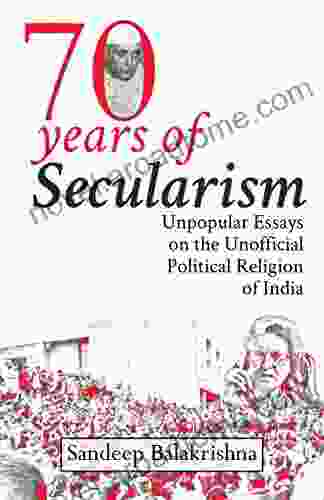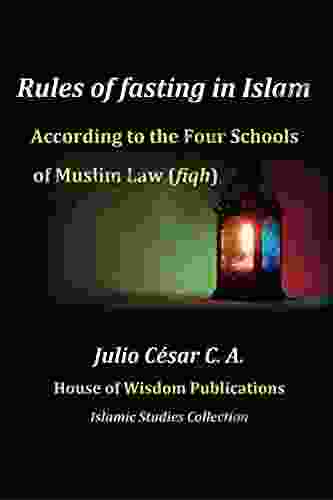Unveiling the Nuances of Islamic Law: A Comprehensive Guide Through the Four Schools of Fiqh

Islamic jurisprudence, known as Fiqh, forms the cornerstone of Islamic law and encompasses a vast body of knowledge that governs diverse aspects of Muslim life. Rooted in the teachings of the Prophet Muhammad and the Quran, Fiqh provides a comprehensive framework for guiding believers in their religious, social, and personal conduct. Throughout the ages, various schools of Islamic jurisprudence have emerged, each employing its unique methodology and interpretations to address the complexities of human affairs. In this article, we embark on an in-depth exploration of the four primary schools of Fiqh—Hanafi, Maliki, Shafi'i, and Hanbali—examining their distinctive characteristics, historical development, and ongoing influence on Islamic societies.
The Hanafi School
Established by Abu Hanifa al-Nu'man in the 8th century, the Hanafi school is renowned for its emphasis on reason and analogy. Hanafi scholars prioritize logical deduction and seek to derive legal rulings based on rational analysis of existing precedents. They often employ the principle of istihsan, which allows for consideration of public interest and common sense in legal decision-making. The Hanafi school has gained widespread acceptance in Central Asia, South Asia, and parts of the Middle East.
4.7 out of 5
| Language | : | English |
| File size | : | 4514 KB |
| Screen Reader | : | Supported |
| Print length | : | 105 pages |
| Lending | : | Enabled |

Key Characteristics:
* Reliance on analogy (qiyas) as a primary source of legislation * Emphasis on public interest and common sense (istihsan) * Recognition of local customs and practices (urf) * Flexibility in adapting to changing circumstances * Strong influence on legal systems in Central and South Asia
The Maliki School
Founded by Malik ibn Anas in the 8th century, the Maliki school is known for its focus on the practices and traditions of Medina, the city where the Prophet Muhammad lived. Maliki scholars place great importance on the Sunnah, or example of the Prophet, as the primary source of guidance. They also emphasize the role of consensus (ijma') among the scholars of Medina in determining legal rulings. The Maliki school has a strong presence in North Africa, West Africa, and some regions of the Middle East.

Key Characteristics:
* Reliance on the practices of Medina (amal ahl al-Madinah) * Emphasis on the Sunnah and consensus (ijma') * Recognition of local customs that are not contrary to Shariah * Flexibility in adapting to local contexts * Influence on legal systems in North and West Africa
The Shafi'i School
Established by Muhammad ibn Idris al-Shafi'i in the 9th century, the Shafi'i school is known for its rigorous adherence to the Quran and Sunnah. Shafi'i scholars emphasize the importance of textual analysis and seek to derive legal rulings directly from these primary sources. They also employ the principle of qiyas, but with a greater degree of caution and specificity. The Shafi'i school has a significant presence in Egypt, Southeast Asia, and parts of East Africa.

Key Characteristics:
* Emphasis on the Quran and Sunnah as primary sources of law * Reliance on qiyas, but with strict conditions * Avoidance of reliance on local customs * Consistency and rigor in legal interpretations * Influence on legal systems in Egypt and Southeast Asia
The Hanbali School
Founded by Ahmad ibn Hanbal in the 9th century, the Hanbali school is known for its strict adherence to the literal text of the Quran and Sunnah. Hanbali scholars place less emphasis on reason and analogy, and instead prefer to rely on direct textual evidence for legal rulings. They also emphasize the importance of following the practices of the early Muslims (salaf). The Hanbali school has a strong presence in Saudi Arabia and some other parts of the Middle East.

Key Characteristics:
* Strict reliance on the Quran and Sunnah * Limited use of reason and analogy * Emphasis on following the practices of the early Muslims * Rigidity in legal interpretations * Influence on legal systems in Saudi Arabia and other conservative Muslim societies
Similarities and Differences
Despite their distinctive characteristics, the four schools of Fiqh share common principles and objectives. All schools aim to derive legal rulings that are consistent with the teachings of Islam and to provide guidance for Muslims in their daily lives. They all recognize the Quran and Sunnah as primary sources of law, although they differ in their interpretations and methodologies.
The schools differ in their approach to certain legal issues, such as the role of custom and local practices, the use of reason and analogy, and the degree of flexibility in adapting to changing circumstances. These differences reflect the unique historical and cultural contexts in which each school developed.
Historical Development
The four schools of Fiqh gradually emerged over a period of several centuries, as scholars sought to systematize Islamic jurisprudence and address the complexities of a growing Muslim community. The Hanafi school originated in the early Abbasid period in Iraq, while the Maliki school developed in Medina and spread throughout North Africa. The Shafi'i school emerged in Egypt and Iraq, and the Hanbali school took shape in Baghdad.
Throughout history, the schools of Fiqh have interacted and influenced each other, leading to a cross-fertilization of ideas and the development of new legal doctrines. Scholars often traveled between the different schools, exchanging knowledge and debating legal issues.
Influence on Islamic Societies
The four schools of Fiqh have played a profound role in shaping Islamic societies and legal systems. They have provided a framework for regulating personal, familial, commercial, and governmental affairs, and have influenced the development of social norms and cultural practices.
In many Muslim countries, the schools of Fiqh continue to serve as the basis for state law and legal education. They also serve as a source of intellectual and spiritual guidance for Muslims worldwide.
Contemporary Relevance
In the modern era, the four schools of Fiqh continue to be relevant and influential in Muslim societies. They provide a rich source of legal guidance and ethical principles that Muslims can draw upon in navigating the complexities of contemporary life.
Scholars from the different schools actively engage in dialogue and collaboration to address emerging legal issues, such as those related to bioethics, finance, and global governance. They seek to find common ground and derive rulings that are consistent with the principles of Islam and the needs of the modern world.
The four schools of Islamic Fiqh, Hanafi, Maliki, Shafi'i, and Hanbali, represent a diverse and vibrant tradition of legal scholarship that has played a vital role in shaping Islamic societies throughout history. Each school has its unique characteristics and methodologies, but all share a common goal of providing guidance for Muslims in their spiritual and worldly affairs. By understanding the nuances of each school, we gain a deeper appreciation for the richness and diversity of Islamic jurisprudence and its ongoing relevance in the modern world.
4.7 out of 5
| Language | : | English |
| File size | : | 4514 KB |
| Screen Reader | : | Supported |
| Print length | : | 105 pages |
| Lending | : | Enabled |
Do you want to contribute by writing guest posts on this blog?
Please contact us and send us a resume of previous articles that you have written.
 Book
Book Novel
Novel Page
Page Chapter
Chapter Text
Text Story
Story Genre
Genre Reader
Reader Library
Library Paperback
Paperback E-book
E-book Magazine
Magazine Newspaper
Newspaper Paragraph
Paragraph Sentence
Sentence Bookmark
Bookmark Shelf
Shelf Glossary
Glossary Bibliography
Bibliography Foreword
Foreword Preface
Preface Synopsis
Synopsis Annotation
Annotation Footnote
Footnote Manuscript
Manuscript Scroll
Scroll Codex
Codex Tome
Tome Bestseller
Bestseller Classics
Classics Library card
Library card Narrative
Narrative Biography
Biography Autobiography
Autobiography Memoir
Memoir Reference
Reference Encyclopedia
Encyclopedia Yelena Mackay
Yelena Mackay Ryuusuke Hamamoto
Ryuusuke Hamamoto Robert J Bulkley
Robert J Bulkley Stephen Sturgess
Stephen Sturgess Toni Bernhard
Toni Bernhard Sabrina C Agarwal
Sabrina C Agarwal Victoria Best
Victoria Best Vl Dealexander
Vl Dealexander Rob Rose
Rob Rose Steve Sande
Steve Sande Mia Warren
Mia Warren Stanley Reed
Stanley Reed Susan Auerbach
Susan Auerbach Jack Hunter
Jack Hunter Ron Gullekson
Ron Gullekson Samantha Green
Samantha Green Sunny Mera
Sunny Mera Steve Richards
Steve Richards Wayne Scraba
Wayne Scraba Rebecca Z Shafir
Rebecca Z Shafir
Light bulbAdvertise smarter! Our strategic ad space ensures maximum exposure. Reserve your spot today!

 Samuel BeckettUnveiling the Dark Truth: Final Solutions: Human Nature, Capitalism, and...
Samuel BeckettUnveiling the Dark Truth: Final Solutions: Human Nature, Capitalism, and...
 Orson Scott CardDiscover the Profound Insights of Spiritual Knowledge: A Literary Masterpiece...
Orson Scott CardDiscover the Profound Insights of Spiritual Knowledge: A Literary Masterpiece... Damon HayesFollow ·17.8k
Damon HayesFollow ·17.8k Finn CoxFollow ·17.5k
Finn CoxFollow ·17.5k Neil GaimanFollow ·11k
Neil GaimanFollow ·11k Neal WardFollow ·9.2k
Neal WardFollow ·9.2k Albert ReedFollow ·15.4k
Albert ReedFollow ·15.4k Craig BlairFollow ·13.7k
Craig BlairFollow ·13.7k Jimmy ButlerFollow ·14k
Jimmy ButlerFollow ·14k Bernard PowellFollow ·9.1k
Bernard PowellFollow ·9.1k

 Eli Brooks
Eli BrooksOver 700 Organic Remedies Shortcuts And Tips For The...
: Embracing the Power of...

 Carter Hayes
Carter HayesUnveiling the Unofficial Political Religion of India: A...
Embark on an...

 Colin Richardson
Colin RichardsonOf Colors and Critters: A Journey Through the Animal...
In the tapestry of...

 Harry Hayes
Harry HayesUnveiling the Hidden Truths: Mao, Stalin, and the Korean...
Step into the enigmatic realm of the 20th...

 George Bernard Shaw
George Bernard ShawBand 1b Pink: A Journey Through the World of Reading
Band 1b Pink is a...
4.7 out of 5
| Language | : | English |
| File size | : | 4514 KB |
| Screen Reader | : | Supported |
| Print length | : | 105 pages |
| Lending | : | Enabled |










